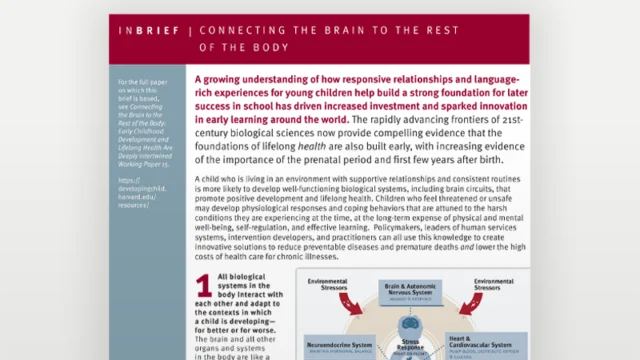InBrief | Connecting the Brain to the Rest of the Body

This page has been translated.
A growing understanding of how responsive relationships and language-rich experiences for young children help build a strong foundation for later success in school has driven increased investment and sparked innovation in early learning around the world.
The rapidly advancing frontiers of 21st-century biological sciences now provide compelling evidence that the foundations of lifelong health are also built early, with increasing evidence of the importance of the prenatal period and first few years after birth. A child who is living in an environment with supportive relationships and consistent routines is more likely to develop well-functioning biological systems, including brain circuits, that promote positive development and lifelong health. Children who feel threatened or unsafe may develop physiological responses and coping behaviors that are attuned to the harsh conditions they are experiencing at the time, at the long-term expense of physical and mental well-being, self-regulation, and effective learning.
Policymakers, leaders of human services systems, intervention developers, and practitioners can all use this knowledge to create innovative solutions to reduce preventable diseases and premature deaths and lower the high costs of health care for chronic illnesses.